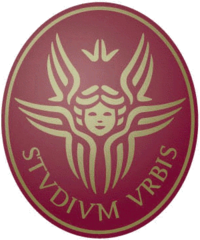Chair, Division of Engineering
Co-Director, Neural Engineering Laboratory
Assistant Professor of Neurosurgery
Sensing Electrode Development for Control of Neurotransmitters in Biologic Systems
Abstract
For the treatment of a variety of medical conditions, deep brain stimulation (DBS) is the therapy of choice. Current extension of this therapy is limited by the ability to create a feedback loop through the use of sensors capable of differentiating neurotransmitter concentration.
The traditional sensing material of pyrolytic carbon is not sufficiently stable for long term patient use (estimated 30 year life). We describe the development of synthetic boron-doped diamond electrodes usable for measuring neurochemical release in animals and humans through fast scan cyclic voltammetry (FSCV). Comparison of the diamond material to pyrolytic carbon fiber shows significantly reduced degradation of electrode sensitivity over time.
In comparison to the carbon fiber electrodes, the boron doped diamond electrodes also exhibit substantial increase in compressive strength which reduces risk to patients during insertion into deep brain structures.
Electronic sensing protocols and software signal processing techniques were utilized to improve the apparent sensitivity of the diamond electrodes and extend the sensing techniques to absolute value measurements.
The exceptional electrochemical, mechanical and biological compatibility of diamond provide substantial improvement in conventional sensing technology for fast scan cyclic voltammetry in biological systems. We anticipate that these properties will enable practical closed loop deep brain stimulation systems for implementation for treatment for many additional therapies improving human life.
Speaker Bio
Kevin E. Bennet, PhD, serves as chair of the Division of Engineering and co-director of the Neural Engineering Laboratories at Mayo Clinic in Rochester, Minnesota, USA. He is responsible for the development and application of new technology for clinical practice and research. His personal direct research and development efforts include deep brain stimulation, wireless physiological monitoring and minimally invasive surgery. He holds the academic rank of Assistant Professor of Neurosurgery of the Mayo Clinic College of Medicine and Science.
Dr. Bennet received his BSChE in chemical engineering from the Massachusetts Institute of Technology his MBA from Harvard Business School and his PhD in engineering from Deakin University.
Dr. Bennet joined Mayo Clinic in 1990 and has held appointments in the Division of Systems and Procedures and the Office of Strategic Alliances, where he served as chair. He was a leadership member of the Mayo Clinic Robert D. and Patricia E. Kern Center for the Science of Health Care Delivery, serving on the Health Systems Engineering Steering Group.
Dr. Bennet was the first recipient of the Mayo Clinic Team Science Award as a Mayo Distinguished Investigator. He is currently a member of the Scientific Advisory Group for the Mayo Clinic Discovery and Translation Program. Internationally he serves on the scientific advisory board of the Centre for Research in Medical Devices of the Science Foundation Ireland
Dr. Bennet is frequently invited to give presentations on his work to both national and international audiences, and he has authored numerous peer-reviewed articles as well as book chapters. He has also served as a reviewer of Mayo Clinic Proceedings and the National Institutes of Health Small Business Innovation Research program. In addition, he has served as a consultant to the National Institutes of Health and on-site visit teams. He holds patents concerning medical, semiconductor and optical technology and has founded several technology-based companies.
In addition to his leadership and research activities, Dr. Bennet is active in education, including Visiting Professorships and providing mentorship to many visiting scientists, research trainees and students.





